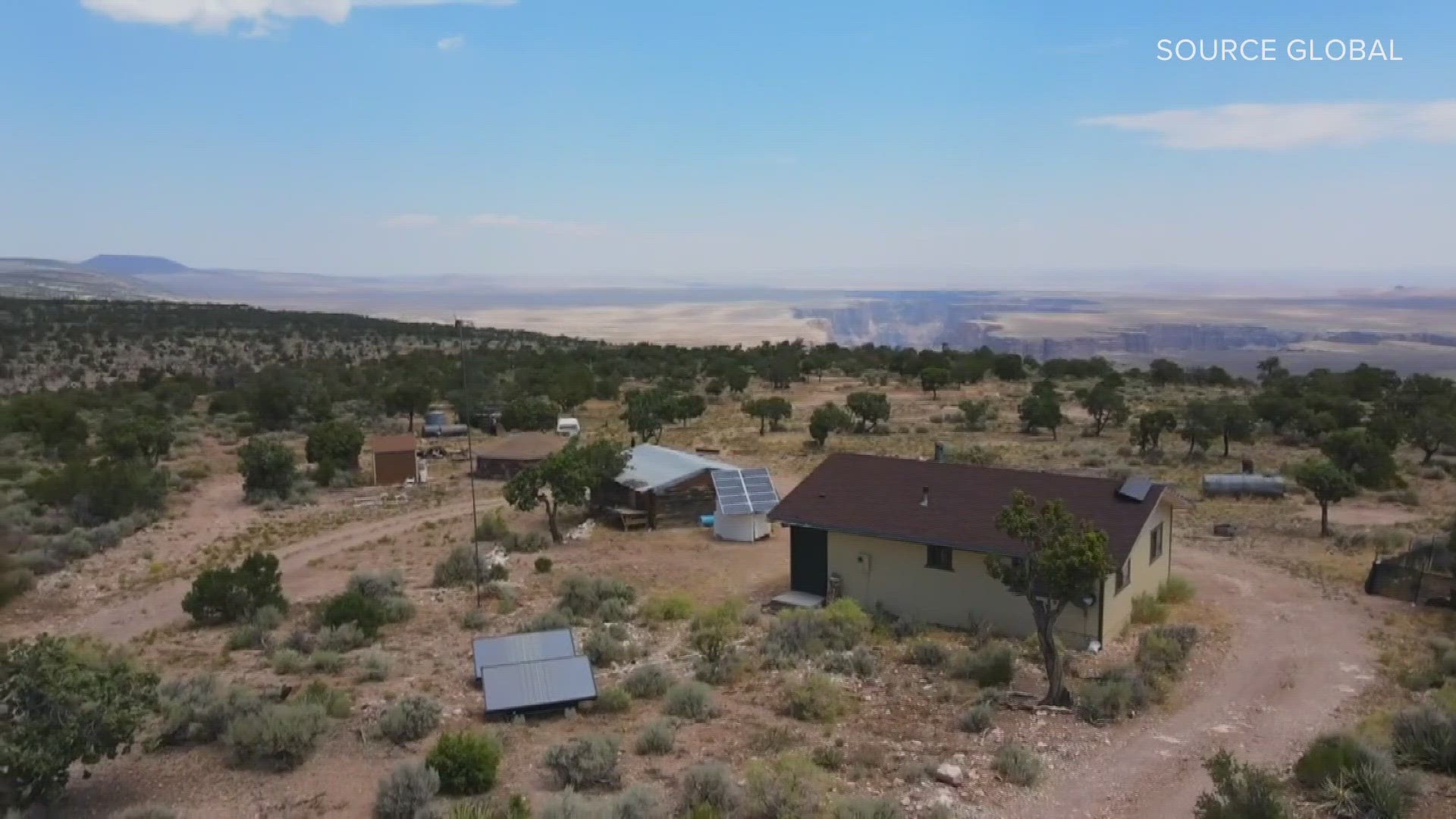SCOTTSDALE, Ariz. — Nearly half of all tribal homes lack access to reliable water sources, clean drinking water or basic sanitation, according to the Center for Natural Resources and Environmental Policy.
The startling statistics exemplify how dire the need is for access to safe drinking water in many remote communities across Arizona.
But help is on the way, thanks to a new partnership between a Valley nonprofit and a Scottsdale company that created technology to extract drinking water from the air.
On the roof of a big office building near McDowell and Scottsdale roads, there's a spout attached to a system known as a hydropanel, where you can fill up a glass of water.
And it’s not just any water, it’s clean drinking water.
The system is also connected to a faucet inside the office of Source Global, a Scottsdale company that created the technology behind the hydropanels that extract drinking water from the air.
“It is essentially a completely independent drinking water creation system,” said Ashley Hower of Source Global.
Hower shared how the technology behind the hydropanels works.
“That creates water using only sunlight and air,” she said. “It’s really amazing.”
Essentially, hydropanels use solar energy to power fans that draw in air and push it through water-absorbing material. The process passively turns water vapor into drinking water. It's mineralized for health and taste and then kept clean in a storage tank until it is needed. And it doesn't require electricity or hard pipes.
Source Global recently teamed up with the Phoenix based nonprofit Local First Arizona to install hundreds of hydropanels in remote communities across the state.
The installations are made possible with a $7.5 million dollar state grant, part of the Arizona Drinking Water Program.
“These are individuals or families that do not have access… we take that for granted sometimes, I got up, made coffee with clean, safe water, I took a shower,” said Rafael Tapia, director of tribal community connections for Local First Arizona. “Those are conveniences our citizens in Arizona do not have.”
Tapia grew up in southern Arizona without access to safe, clean drinking water in his home, so he knows how much the work they are doing will change lives.
“We’re very excited about this,” said Tapia.
From here, they will be installing 800 hydropanels in remote communities across the state, specifically in tribal communities and for families who live in southern Arizona and rural communities.
They will be providing more than 3,400 people access to clean drinking water at no cost.
“Each panel will begin producing almost immediately based on, obviously, exposure to sunlight and humidity in the air,” Hower said. “Each panel, here in Arizona, even in our drier climate,[will produce] somewhere in the realm of three to four 16.9-ounce bottles of water a day for each panel.”
The systems will be placed on a sunny patch of ground right next to the home, and from there water can be tapped straight from the outdoor panels or from a faucet inside the home.
“Within a few hours somebody should be able to reasonably be able to fill up a glass of water,” she added.
So far, hydropanels have already been installed for families in more than 50 countries. 500 of those are on the Navajo Nation.
The hydropanels are saving tribal families as much as $840 dollars every year, since they don’t have to buy bottled water or truck it in.
If you’re interested in applying for a hydropanel, just go to: source.co/azwp.

